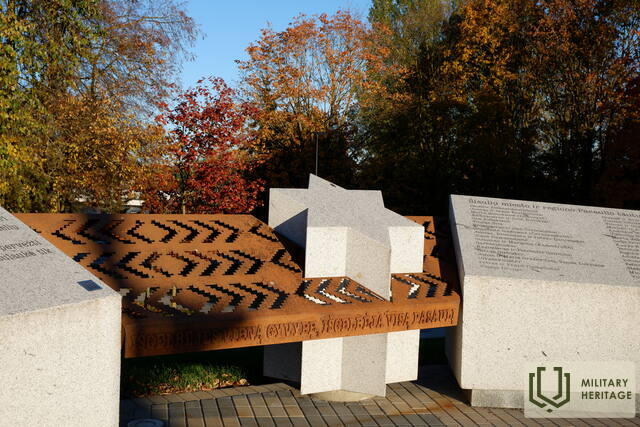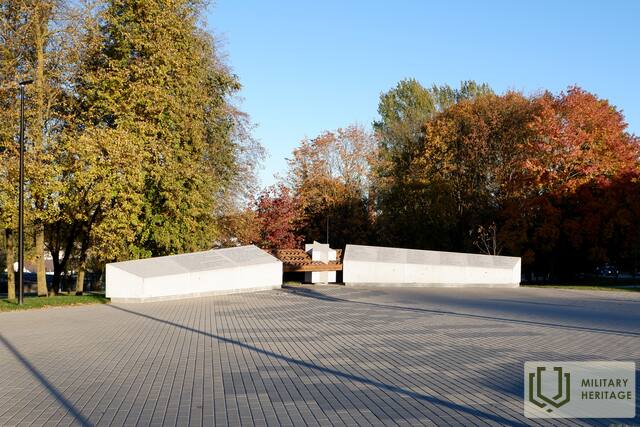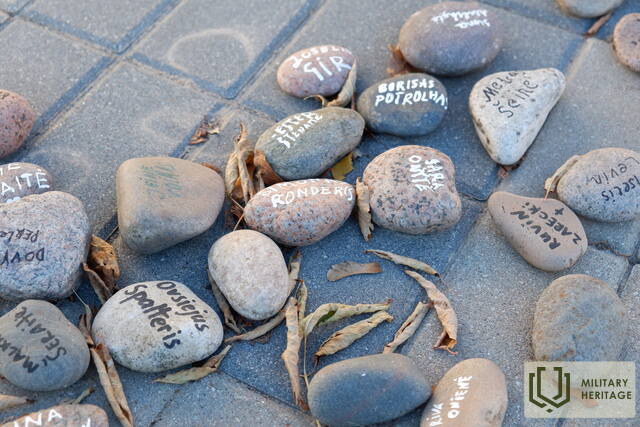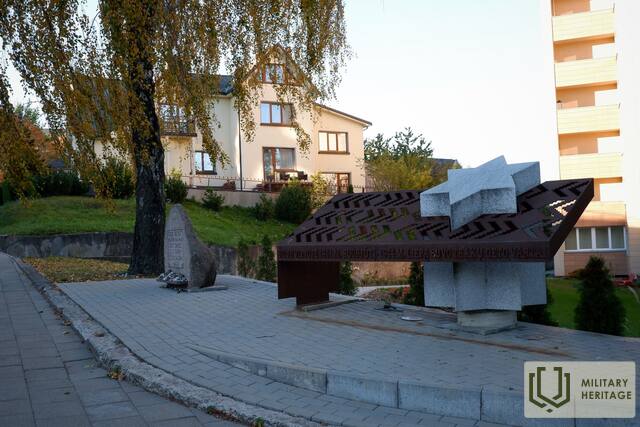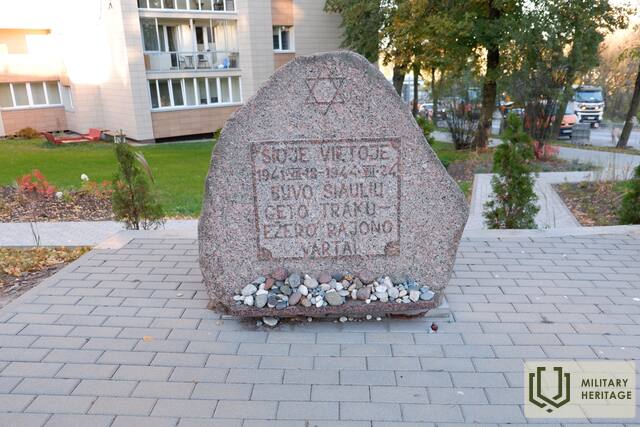Square for the Righteous Among the Nations (Monument)
Memorial site

On 22 October 2021, the Square for the Righteous Among the Nations (monument) was inaugurated in Šiauliai, at the intersection of Ežero and Vilniaus streets. It is the first monument to the Righteous Among the Nations in Lithuania. The monument was created by the designer Adas Toleikis, a native of Šiauliai, and the idea of the monument was initiated by Sania Kerbelis, the chairman of the Jewish community of Šiauliai County.
The monument “Jungtis” is engraved with the surnames of the “Righteous Among the Nations” of Šiauliai County, thus commemorating 148 Jewish rescuers, while artistic accents mark the gates of the Šiauliai Ghetto. There were two ghettos in Šiauliai: in the so-called Kaukazo Quarter and in the Ežero-Trakų Street Quarter. Physically strong and able-bodied people were sent to the first one, and specialists (doctors, mechanics, etc.) to the second. The Šiauliai Ghetto was established in the summer of 1941 on the orders of the Šiauliai Commandant and liquidated in 1944 with the retreat of Nazi German troops. The remaining Jews were transferred to Stutthof and Dachau concentration camps. More than 5,950 Jews were imprisoned in the Ghettos. During the inter-war period, Šiauliai was home to about 6,500–8,000 Jews, some of whom left voluntarily into mainland Russia. After the Holocaust, there were only about 350–500 Jews left.
Used sources and references:
Related timeline
Related topics
Related stories
The man who saved the persecuted
Bronius Gotautas, known to the people as Broliuk, risked his life during and after World War II to save persecuted people - both Jews, Lithuanian nationalists, and Russian soldiers.
Lithuanian rescuers - Miriam Javnaitė-Voronova's survival story
During World War II, Miriam Javnaitė-Voronova survived the Holocaust thanks to many Lithuanians who, risking their own lives and the lives of their loved ones, hid, fed, and cared for persecuted Jews.




